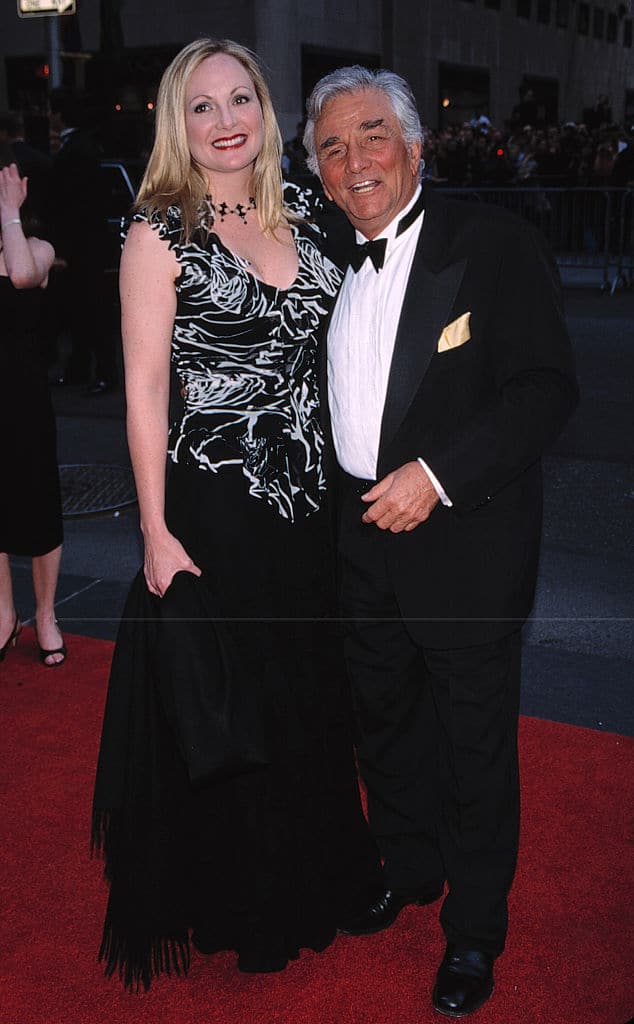Few TV detectives have left a mark quite like the rumpled, raincoat-wearing sleuth “Columbo.” For decades, audiences watched Peter Falk’s iconic character shuffle into crime scenes with his scratchy voice, ever-present cigar, and that unforgettable moment when—just as the villain thought they were in the clear—he’d turn back and say, “Just one more thing…”
The series became a staple of 1970s prime-time television and continued to air new episodes on and off until 2003. Unlike the polished, sharply dressed detectives that dominated earlier crime shows, Columbo flipped the genre on its head. Here was a seemingly absent-minded, blue-collar homicide detective who consistently outsmarted wealthy criminals who underestimated him. Viewers loved him for it, and Peter Falk earned four Emmy Awards for his brilliant portrayal.
But behind the fame was a complicated man. According to authors Richard Lertzman and William Birnes in their biography Beyond Columbo, there was a side of Falk that fans never saw. They wrote that Falk “drank and smoked incessantly, loved boozing with his friends, and was an inveterate womanizer. He was a negligent husband and an absentee father.” Their book attempts to give a deeper look into his personal life, his artistry, and the ways his private world contrasted with his public image.
Long before stardom, Falk faced a major medical challenge. At just three years old, he had his right eye surgically removed due to retinoblastoma and wore a prosthetic eye for the rest of his life. His trademark squint became part of his on-screen charm, even though it was the product of hardship. Despite this, he played sports enthusiastically as a boy. In one memorable story he shared with Cigar Aficionado, he recalled being called out at third base during a high school game: frustrated, he removed his glass eye, handed it to the umpire, and said, “Try this.” The crowd roared with laughter.
His acting career took off in 1960 with Murder, Inc., where his chilling performance as Abe Reles earned him an Academy Award nomination. The following year, he starred opposite Bette Davis in Pocketful of Miracles and received another Oscar nomination. By the time Columbo hit its stride, Falk was one of the highest-paid TV actors of the era, earning roughly $250,000 per episode.
While his professional life soared, his personal life was far less stable. In 1960, he married his college sweetheart, Alyce Mayo, whom he’d met at Syracuse University. The two had dated for 12 years before finally tying the knot. Alyce, a designer, reportedly tolerated Falk’s infidelity for years, but after 16 years of marriage, she left. Together, they adopted two daughters, Catherine and Jackie. Jackie stayed mostly out of the spotlight, but Catherine’s relationship with her father became increasingly strained. She later alleged he stopped paying her college expenses and, years later, described their relationship as deeply affected by Falk’s second marriage.
When Falk married actress Shera Danese, things reportedly worsened between Catherine and her father. Catherine claimed she was kept at a distance and said, “We weren’t allowed to go to his house.” Their conflict grew even more bitter in the years before his death.
Falk suffered many health struggles later in life. After hip surgery in 2008, symptoms of Alzheimer’s disease reportedly worsened dramatically. His doctor, Stephen Read, said Falk eventually no longer remembered playing Columbo. Along with his dementia, he faced complications from pneumonia—the condition that ultimately claimed his life in June 2011. He died peacefully at his Beverly Hills home at age 83.
Tributes poured in from across Hollywood. Steven Spielberg, who had worked with Falk early in his career, said, “I learned more about acting from him at that early stage of my career than I had from anyone else.”
But even in death, the family drama continued. Catherine Falk revealed that she had been barred from seeing her father during his final years and found out about his passing hours after it happened. She accused Shera Danese of keeping her away, but Shera’s attorney pushed back, stating, “Peter’s final resting place is only about Peter, not Catherine, his estranged adopted daughter.”
Despite the personal turmoil, Peter Falk’s legacy remains enormous. His portrayal of the disheveled detective who always out-thought the elite left an imprint on television history. Generations of fans still cherish his sly smile, his wandering monologues, and that single raised finger signaling a twist no criminal could dodge.
A remarkable career, a complicated life, and a character who will always be remembered.





0 Comments